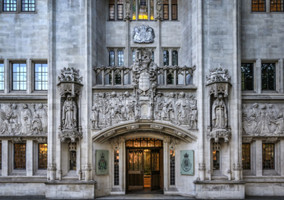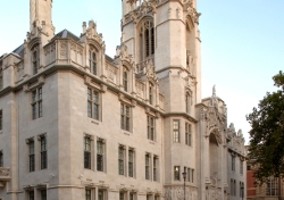Chris Millward, chief executive of the Institute of Legacy Management, writes that the victory for three animal charities in the supreme court this week was more about the principle than the money.
I’ve watched press coverage of the recent decision by the Supreme Court in the case of Ilott v Mitson unfold with a degree of discomfort.
Much of the coverage has proudly announced that the charities have succeeded in their appeal against the daughter (Heather Ilott), and that the decision by the High Court (to award £143,000 to Ilott to buy her Council house plus an additional sum of £20,000 to be drawn upon as and when required) should be overturned and the original decision by Judge Million at District Court (to award £50,000) be reinstated.
A point of principle
Replaying the age-old family v charity (David v Goliath) argument, as much of the coverage has done, overlooks the more fundamental point - the very reason the charities filed their appeal with the Supreme Court in the first instance. This Supreme Court hearing, for the charities at least, was never about the money. It was about a principle. One so fundamentally held and acted upon in reliance by anyone who writes a will in the UK - that of testamentary freedom.
After nearly a decade, it’s good to have clarity and at least some form of closure. I’m sure the sector shared a collective sigh of relief as the judgment was handed down. Although the charities have been criticised by some for their actions, I’m sure this was not a process they chose to enter lightly. Out of Court settlement isn’t always possible – especially when dealing with claimants who ultimately were prepared to take things all the way to the High Court.
Striking the right balance
Legacy giving must strike a careful balance between fulfilling the generous final wishes of donors and managing organisational reputation. Charities in so much as they are able will always strive to honour the final wishes of donors.
In this case, their mandate for court action came from the donor herself, in the form of a letter. One which made clear that she had already informed her daughter that she should not expect anything from the estate and that if her estate was challenged the charities should do what was required to defend her legacy.
The thought that a parent might actively disinherit any of their offspring is a divisive one.
Charities have long been aware of the sensitivities which surround legacy giving and the importance of family in the process. Much of our sector’s narrative in relation to legacy fundraising is built upon ‘family first’ messaging. This is appropriate for those who would choose to support their families in this way, but what of those who have no family or for people like Mrs Jackson, the donor in this case, who choose not to?
How can the sector learn from this outcome? Charities need to be more aware of these sensitivities and perhaps consider a more nuanced – rather than the current broad brush - approach.
Bringing clarity
The Inheritance (Provision of Family and Dependents) Act, under which Heather Ilott brought her claim, enables certain categories of people (spouse, civil partner, dependent children etc.) - in specific and limited circumstances – to bring claims against estates. Any such claim should be judged upon its own merits in terms of whether ‘reasonable financial provision’ has been made.
After nearly 10 years it’s good to get clarity from the Supreme Court on the extent of judges’ powers in such situations. Most encouraging is the reiteration that a donor’s final wishes matter and that they should be taken into consideration when assessing any such claim against an estate.
The ruling also acknowledges that charities depend heavily on legacy gifts to fund their work often for "demonstrably humanitarian purposes". It also acknowledges, more fundamentally, that "charities were the chosen beneficiaries of the deceased" and that "they did not have to justify a claim on the basis of need under the 1975 Act".
Ilott and Mitson, in so many ways, will be a landmark moment for charities. Commentators will pick over it for months to come. But, although it’s unfortunate much of the coverage has focused on the family dispute rather than the principle, I believe the future now looks much brighter for donors, charities and for the good work that together they achieve through legacy gifts.
This ruling isn’t just about a victory for the charities, it’s about a victory for choice, a victory for us all.
Related Articles













